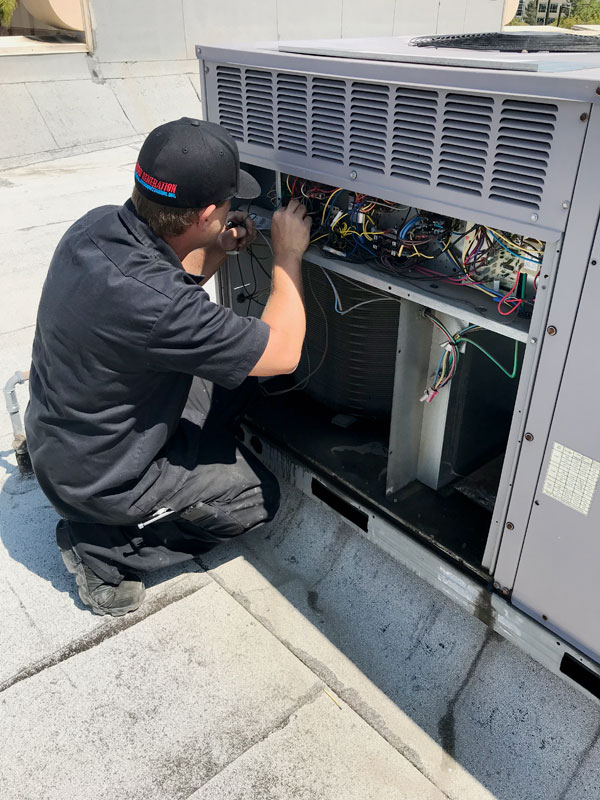
On a hot summer day in the Temecula Valley, your air conditioner is the most important appliance in your home. It’s your refuge from the sweltering heat. So, when you turn it on and are met with lukewarm or even warm air blowing from your vents, it’s a major cause for concern. An AC system that isn’t blowing cold air is more than just an inconvenience; it’s a clear sign that something is wrong with the system. While there are several potential causes, a few common culprits are responsible for the majority of AC failures. Understanding these issues can help you know when to call a professional for help.
The First and Simplest Check: The Air Filter of Your AC
Before you panic, the very first thing you should always check is your HVAC system’s air filter. A dirty, clogged air filter is the number one cause of AC problems. The filter is designed to trap dust, pollen, and other debris, but when it becomes clogged, it severely restricts airflow over the evaporator coils. This lack of airflow can cause the coils to get too cold and freeze over, completely blocking the cooling process.
- What to do: Check your air filter. If it’s visibly dirty and gray, replace it with a new, clean one. Sometimes, this simple step is all it takes. After replacing the filter, you may need to run the system on “fan only” mode for a while to help the frozen coils thaw out.
Common Mechanical and Electrical Failures
If a clean filter doesn’t solve the problem, you are likely dealing with a more technical issue that requires a professional diagnosis.
- Low Refrigerant Levels: Refrigerant is the lifeblood of your air conditioning system; it’s the chemical compound that absorbs heat from inside your home and transfers it outside. Your AC is a closed-loop system, so you should never “run out” of refrigerant. If your level is low, it means you have a leak somewhere in the refrigerant lines. A technician will need to find and repair the leak before recharging the system. As the U.S. Department of Energy explains, simply adding more refrigerant without fixing the leak is not a sustainable solution.
- Dirty Condenser Coils: The outdoor unit of your AC system is called the condenser. It contains coils that are responsible for releasing the heat absorbed from your home into the outside air. Over time, these coils can become covered in dirt, dust, grass clippings, and other debris. A thick layer of grime acts like an insulating blanket, preventing the coils from releasing heat effectively. This forces your system to work harder and dramatically reduces its cooling ability.
- A Failed Capacitor: The capacitor is a small, cylindrical component that provides the jolt of electricity needed to start your AC’s compressor and fan motors. These components can wear out, especially under the strain of a hot summer. A failed capacitor is a very common reason for an outdoor unit to stop working, and it’s a relatively simple and inexpensive part for a professional to replace.
When to Call a Professional HVAC Technician
Unless the problem is a simple dirty air filter, any issue involving your air conditioner should be handled by a qualified professional. Working with refrigerants requires an EPA certification, and troubleshooting electrical components like capacitors and motors is dangerous without the proper training. Home service resources like Angi always recommend calling a pro for these types of repairs.
The risk of causing more expensive damage makes professional expertise essential for certain complex jobs, a principle well understood in trades like plumbing.
Your Temecula Valley Air Conditioning Experts
When the summer heat is beating down, you need your air conditioner to work flawlessly. If your system is blowing warm air or has stopped working altogether, you need fast and reliable professional help. For homeowners throughout the Temecula Valley, the experienced team at Third Generation HVAC can diagnose and repair any issues with your air conditioning. Contact us today for fast, professional service.
